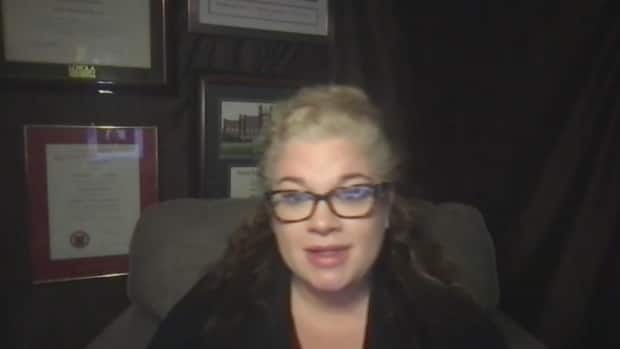Public health wants you to make a COVID isolation plan: Here's how you do that
As rising cases put Windsor-Essex public health resources under strain, officials are asking that people prepare isolation plans and that those who either test positive or think they have COVID-19 start a COVID diary.
With 17 active outbreaks across several sectors and more than 400 active cases, the Windsor-Essex County Health Unit (WECHU) said during its COVID-19 briefing Monday that staff are under strain and need peoples' support.
Medical officer of health Dr. Wajid Ahmed said those steps — having an isolation plan and keeping a contacts diary — can significantly help public health's efforts.
Ahmed said if you have been identified as a close contact of a confirmed case, you shouldn't wait for public health to get in touch, but start by getting tested and immediately implement isolation plans.
But, what should be included in an isolation plan? What sorts of questions should you prepare to be asked by public health if you test positive? How can you be proactive in slowing the spread?
Having a plan
Kate Kemplin, a University of Windsor nursing professor, compares it to the hurricane evacuation plans she got used to growing up in Florida.
"It's almost like that in reverse — you're not evacuating, you're self-isolating," she said.
This means thinking about how you're going to get all of your essential needs met while minimizing contact with others. That includes how you can get groceries delivered, whether a neighbour or anyone else is available to help you, and how you're going to get physical activity.
"If you need to go outside for a walk, you're going to do loops around your backyard or your living room," she said.

If you need to go to work, you should also come up with a plan to keep contact to the absolute minimum. This means driving, or taking a taxi, Uber or Lyft to work — making sure that you stay in the back seat and as far away from the driver as possible. You should also think about how to ensure that you can keep your mask on at all times or as much as possible.
"Just small things we don't typically think about. Make some notes in your phone, leave a little post-it note with your plan," Kemplin said.
When CBC News asked WECHU about isolation plans, a spokesperson pointed to isolation advice from the Public Health Agency of Canada (PHAC).
The agency recommends that you:
Stay at home unless you need to go out for "time-sensitive medical services."
Arrange to have groceries and supplies dropped off at your residence.
Stay in a separate room and use a separate bathroom from others if possible,
Disinfect and clean surfaces that you touch often at least once daily, among other measures.
The PHAC also has a list of items it recommends you have if you need to isolate at home. It includes household cleaning products, medication to reduce fever and a thermometer, among others.
Keeping a 'COVID' diary
Kemplin also supports the idea of keeping a COVID diary — a document of all the places you've been and all your close contacts.
The idea is that a COVID diary would be a useful tool if you have to provide information to contact tracers from the health unit.
"Even if it seems ridiculous at the time, we have to be willing to appear as if we overreacted, because that's how to keep the public safe," she said.
Colin Furness, an infection control epidemiologist and an assistant professor at the University of Toronto, agrees.
"It's a great idea. And I think my first piece of advice is don't wait until you might be feeling sick or think that someone around you is," he said.
"I think a lot of people are wondering how they can be useful, how can they be helpful in this really dreadful time, and I think this is a perfect example of being able to be diligent and mindful," he added.
Furness says the most important pieces of information to keep track of are where you've been indoors in an enclosed space, who you were with, how long you were there for, and whether people were wearing masks or not.
If you're someone who has to work a job that involves a lot of contact with the public, things get more complicated. He says in that case it's especially important to keep track of times — what was happening when.
"Exposure time as we call it actually matters quite a lot," he said.
Kemplin and Furness agree an even better strategy than keeping a diary is to have no need to do it by having so little contact with others.
"Contact tracing becomes incredibly easy if you don't go anywhere," Kemplin said.
But keeping a COVID diary can be useful for another reason even if you don't expect to speak with a contact tracer soon, Furness says. It can give you a documented snapshot of how much contact you're having with other people in the pandemic.
"I think it's great for mindfulness," he said.

